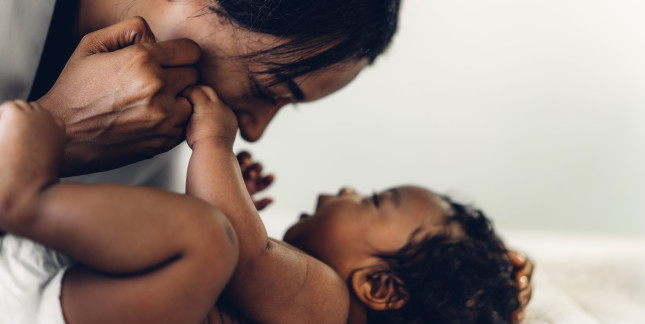-
The First-Ever White House Maternal Health Day of Action – Access to Care is Critical
January 12, 2022 By Chanel Lee
“Regardless of income level, regardless of education level, Black women, Native women, women who live in rural areas are more likely to die or be left scared or scarred from an experience that should be safe and should be a joyful one; and we know a primary reason why this is true – systemic inequities,” said Vice President Kamala Harris during her opening remarks at the first-ever White House Maternal Health Call to Action Summit on December 7, 2021. Members of Congress and maternal health advocates gathered to discuss the importance of addressing racial disparities and systemic challenges in maternal health through national policy.
Investing in maternal health policies and programs is key to reducing racial gaps in maternal mortality. “One-third of pregnancy and birth-related complications happen up to one year of giving birth, and many of these complications such as hemorrhaging, are much more common among Black women,” said Congresswoman Robin Kelly. In 2019, Congresswoman Kelly introduced the MOMMA’s Act, which includes extended Medicaid coverage for pregnant and postpartum women to one year postpartum. Included in the Build Back Better framework, this historic provision carries life-saving implications for women of color, particularly Black women. “Over one-half of [U.S.] births are covered by Medicaid,” said Congresswoman Kelly. And for Black women, 65 percent of births are covered by Medicaid.
Ensuring access to quality care in resource-limited and rural settings is also critical. “The inconvenience of not being able to see a doctor or find a pediatrician in our area is very difficult as the providers that we do have are amazing, but they are completely booked up and usually two to three weeks out. So when you have an issue with a newborn or yourself as you’re pregnant, it’s very difficult to get in,” said Stephanie Monroe, a resident of rural Colorado. Monroe struggled to access providers and services in her rural community during and after her pregnancy, including maternal and newborn care, mental health counseling, and lactation support.
Panelists also spoke about the difficulty in accessing services for Native American and Indigenous families living on reservations that might not have reliable electricity, clean water, or stable internet connectivity. “Opening tribally affiliated medical schools that train Native providers is critical in the continuity of care in these isolated and rural Indigenous communities,” said Dr. Jennifer Whitehair, a Navajo provider who understands first-hand that combating systemic challenges requires a commitment of financial resources. Additionally, greater awareness of and training around implicit bias and racism in medicine can improve care for patients of color, said Dr. Whitehair. “Patients connect with providers that look and sound like them and understand their cultural needs.”
The maternal health crisis cannot be solved without removing structural barriers underlying racial inequities. It is only through the ample and continual investment of resources and funding in communities of color that change can occur. “We know that when women do not get the health care they need, families suffer, communities suffer, and our nation suffers,” said Vice President Harris.
Read More
- Inequalities in care drive racial gaps in maternal mortality
- Expanded health coverage is essential for maternal health
- Community-led programs improve Alaska Native maternal health
- Lawmakers and advocates discuss the Black maternal health crisis
Sources: Congress.gov, The White House.
Photo Credit: African American mother playing with baby. Art_Photo/Shutterstock.com.
 A Publication of the Stimson Center.
A Publication of the Stimson Center.



